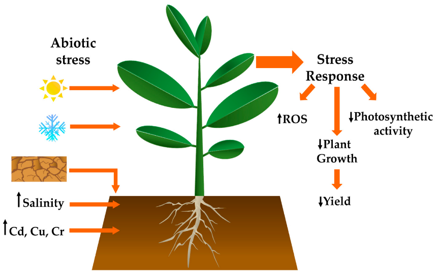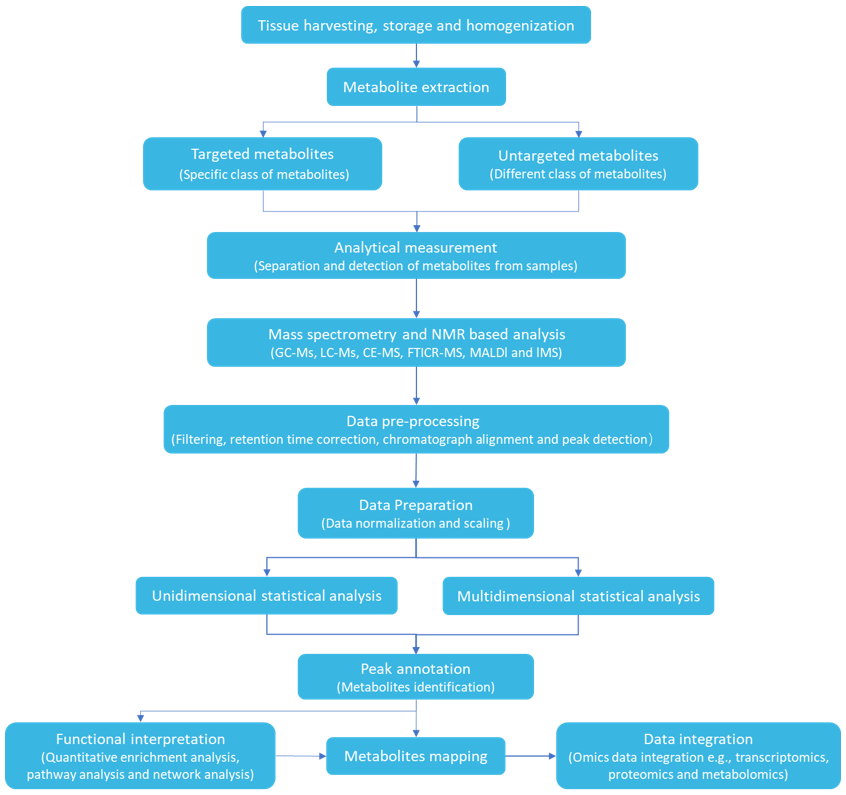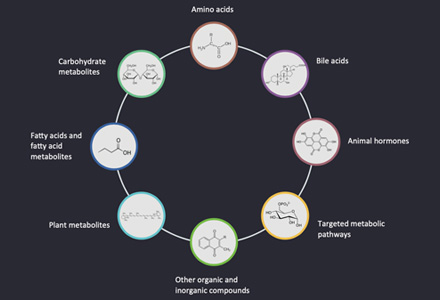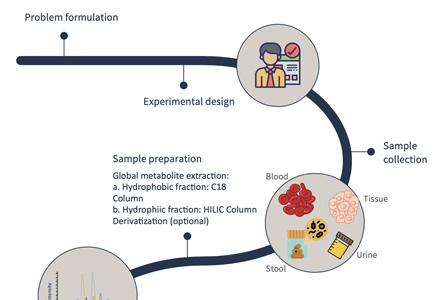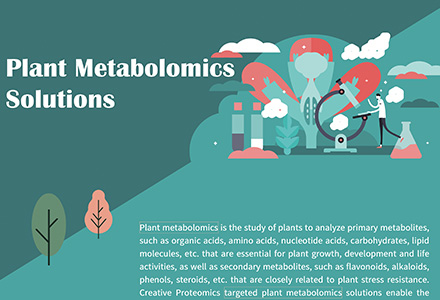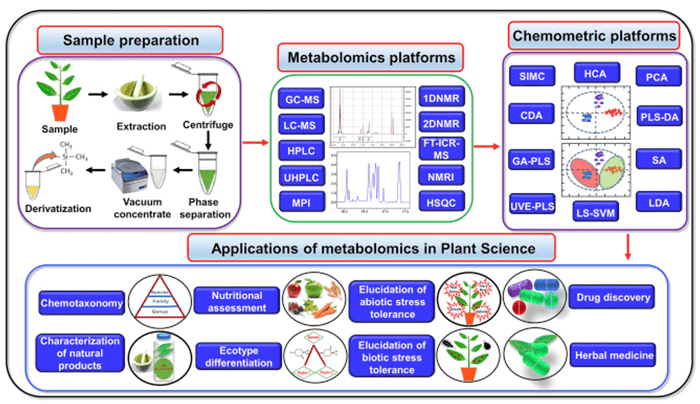Abiotic stress is the adverse effect of any abiotic factor on plants in a given environment, which causes changes in biological processes such as plant growth and development. The main types of abiotic stresses include high temperature stress, low temperature stress, drought stress, flooding stress, salt stress, metal stress, nutrient stress, air pollution, and photo-oxidative stress.
A wide variety of metabolites are involved in plant response to abiotic stress, including primary metabolites such as amino acids, and secondary metabolites such as flavonoids and anthocyanins. Some of these substances have redox effects in stress, such as carotenoids and anthocyanins, and vitamin E. There are also some substances that act through osmoregulation, such as proline, alginate and other substances. The mechanisms of plant response to abiotic stress are intricate and involve multiple pathways involved in regulation. The selection of high-throughput metabolomic techniques helps to detect a richer variety of metabolites.
Creative Proteomics offers metabolomics solutions that enable qualitative and quantitative analysis of metabolites in plants under stressful environments and monitor their patterns over time to help accelerate abiotic stress research.


